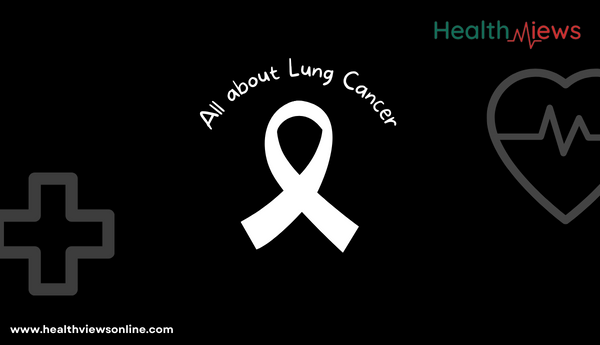People who usually smoke have an increased risk of lung cancer, though this type of cancer can also occur in people who have never smoked. The chance of getting lung cancer increases according to the length of time and the number of cigarettes you have been smoking. If you decide to quit smoking, even though you have smoked for many years, you can still reduce your chances of developing lung cancer.
About Lung Cancer
When cells in a particular area of your body grow out of control, that is called Cancer. Cancer that happens in the lungs is called Lung cancer.
It starts in the lungs and may extend to lymph nodes or other bodily organs, such as the brain. Cancer from different organs of the body may also spread to the lungs. Cancer that spreads from one organ to another is called metastases.
They are generally divided into two main types: small and non-small cells. Non-small cell lung cancer is ubiquitous compared to small cell lung cancer. Both kinds of lung cancer occur differently and are treated differently.
Causes of Lung Cancer
Scientists have discovered some risk factors and are trying to understand how these factors might cause lung cells to become cancerous. On a primary level, it is caused by any transformation in the DNA of a normal Lung cell. We generally look like our parents because they are the source of our DNA. But DNA can affect more than just our looks. DNA mutations or other changes can cause cancer. DNA changes are usually inherited from a parent or acquired during a person’s lifetime. Changes in oncogenes or tumor suppressor genes can lead to cells growing out of control.
Also Read: Prostate Cancer: Symptoms, Causes, Risk Factors, Diagnosis, Prevention, Facts
Risk Factors
- Tobacco smoke
- Secondhand smoke
- Exposure to radon
- Exposure to asbestos
- Arsenic in drinking water
- Previous radiation therapy to the lungs
- Air pollution
- Personal or family history of lung cancer
- Smoking marijuana
- E-cigarettes
- Talc and talcum powder
- (Source & Reference)
Symptoms
Kindly check with your medical specialist if you have any of the following :
- Coughing that is getting worse over time or doesn’t go away.
- Coughing up blood
- Wheezing.
- Weight loss with no known cause.
- Chest pain.
- Shortness of breath.
- Feeling very tired all the time

Diagnosis
- Medical history and physical exam
- Chest x-ray
- Computed tomography (CT) scan
- Magnetic resonance imaging (MRI) scan
- Positron emission tomography (PET) scan
- Bone scan
- Sputum cytology
- Thoracentesis
- Needle biopsy
- Fine needle aspiration (FNA) biopsy
- Core biopsy
- Transthoracic needle biopsy
- Bronchoscopy
- Endobronchial ultrasound
- Endoscopic esophageal ultrasound
- Mediastinoscopy and mediastinotomy
- Thoracoscopy
- Lung function tests
- Molecular tests for gene changes
- complete blood count
- Blood chemistry tests
Prevention
- Stay away from tobacco
- Avoid radon exposure
- Avoid or limit exposure to cancer-causing agents
- Eat a healthy diet

Facts
Lung cancer is the most often diagnosed cancer and the leading cause of cancer-related deaths worldwide. In India, It accounts for 5.9% of all cancers and 8.1% of all cancer-related deaths. The prevalence of smoking in patients with this cancer is nearly 80%.
Also Read: All About Ischemic Stroke: Causes, Symptoms, Diagnosis, Treatment & Diet





